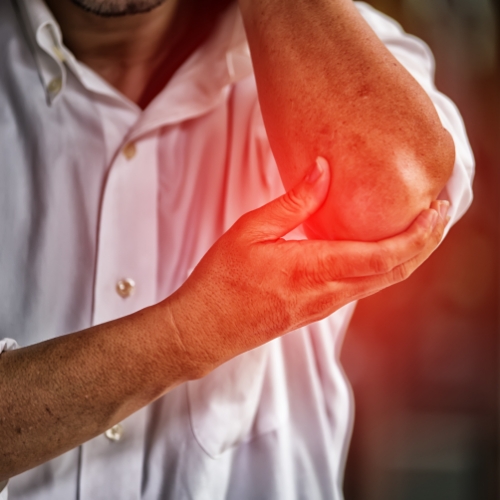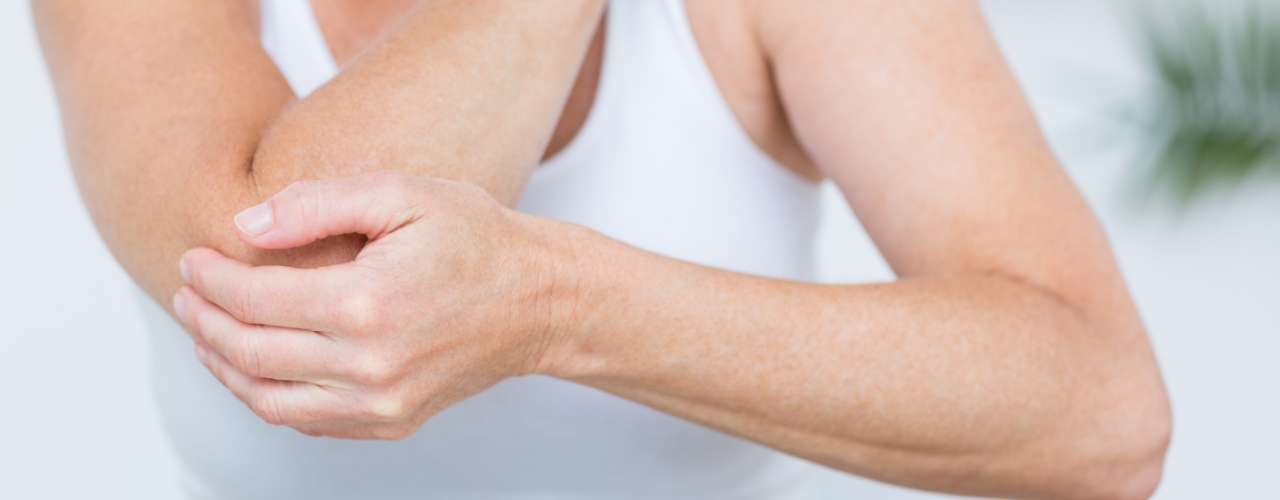Physical Therapy Can Help You Gain Elbow Pain Relief
Do you find yourself unable to lift or reach since hurting your elbow? Do you experience discomfort in your elbow(s) that you cannot seem to resolve on your own? Is your pain reducing your enjoyment of life and making routine chores more challenging to complete? Our physical therapists at Idaho Spine & Sports Physical Therapy in Boise & Meridian, ID can help you find elbow pain relief.
We understand how pain in your elbows can have a negative impact on your entire life, and even more importantly, we can help you resolve your pain and help you get the relief you need!
Common causes for elbow pain
There are many reasons why you may be experiencing pain in your elbow. Regardless of the circumstances behind the injury, these injuries should be evaluated by a physical therapist to ensure quick resolution and no long-term damage occurs.
The following are some of the most common causes of elbow pain:
Elbow Sprain / Strain
Sprains and strains are often confused with one another! A sprain happens when a ligament is overstretched or torn, whereas a strain occurs when a muscle or tendon is overstretched or torn.
Sprains and strains in the elbow are common. An unexpected overstretching of the tissues can cause a tear and result in swelling, pain, and difficulty moving.
Ulnar collateral ligament (UCL) sprain: The ligaments on the inner side of your elbow are stretched or torn due to a throwing motion. In professional baseball, injuries to the UCL account for 10% of all injuries and can be devastating to a player’s career.
Little Leaguer’s Elbow: (aka medial apophysitis) This is one of the most common overuse injuries experienced in adolescent baseball/softball. Young athletes are skeletally immature, and the effects of repetitive overhand throwing cause the inner elbow growth plate to become inflamed.
The pain is typically felt while throwing or immediately after. The pain is usually worse with more innings pitched or games played. In severe cases, motion loss can occur in either the bent or extended position.
When left untreated, some athletes may experience an avulsion fracture (i.e., a small chunk of bone attached to a tendon or ligament gets pulled away from the main part of the bone).
Tendonopathy
Tendonopathy is a diagnosis that describes any problem with a tendon, including disease, injury, or disorder. The most common types of injuries to a tendon include:
Tendonitis: Tendinitis is defined as an inflammation of the tendon. Acute injuries, including small or partial tearing, can result in an inflammatory response and pain, particularly when the affected area is moved.
One way to identify this condition is how quickly it heals. These types of injuries heal quickly as they move through inflammation to tissue repair.
Tendonosis: Tendinosis describes a dysfunctional tendon and typically does not specify the pathological process. It is generally used to describe overuse-type conditions. Recent research has concluded that most overuse tendon pathologies do not have inflammatory cells.
It is important to note that overuse tendon disorders often take a long time to heal and are a slow process. In some cases, treating degenerative collagen with anti-inflammatory medication, such as corticosteroid injections or oral medications, can impair the healing process!
Tennis elbow
Tennis elbow can be tendinitis or tendonosis. If there is inflammation in the tendons of the outer elbow (lateral epicondyle), it is considered tendinitis. Whereas, if it is related to repetitive tasks, it is more commonly tendonitis and will not respond to anti-inflammatory medication.
Examples of tasks commonly associated with tennis elbow include holding a tennis racket, a paintbrush, or a hammer. Tenderness around the outside of your elbow will be severe, causing pain when gripping, lifting, or twisting your forearm.
Golfer’s elbow
Medial (inside) epicondylitis, also known as “golfer’s elbow,” is similar to tennis elbow, except the pain is on the inside of the elbow. This injury is typically caused by the overuse of the muscles that flex your wrist and fingers and can be tendinitis or a tendonosis, depending if there is inflammation in the tendons surrounding the inner aspect of the elbow.
Nerve injuries
Several nerves run from the upper arm through the elbow to the forearm and hand. The ulnar, radial, median, medial antebrachial cutaneous, and lateral antebrachial cutaneous nerves are subject to nerve injuries.
The most common nerve injuries include traction and compression, especially in athletes who place forceful, repetitive stresses across their elbow joint.
Nerve injuries are commonly felt as numbness, tingling, or temperature loss. Nerve injuries resulting from overuse are accompanied by swelling that reduces the nerve’s ability to function correctly. Muscle function is disrupted in cases of severe nerve injury, and paralysis can occur.
Elbow fractures (Olecranon)
Falls are the most common causes of upper extremity fractures, including elbow fractures. This is because the natural reaction is to try to catch yourself when falling and lead with the arm to absorb the fall.
Often immobilization is needed to allow the bones to mend and may result in stiffness, weakness, and persistent pain. Fortunately, our physical therapists at Idaho Spine & Sports Physical Therapy in Boise & Meridian, ID have experience helping people of all ages restore their function after a fracture and immobilization!
Call today to make an appointment with one of our Idaho Spine & Sports Physical Therapy physical therapists. We will identify the source of your pain and recommend treatment options for quick relief and long-lasting results!

Are you searching for elbow pain relief Boise or Meridian, ID?
Physical therapy is especially effective at relieving elbow pain. Idaho Spine & Sports Physical Therapy uses hands-on treatment to reduce pain, increase circulation and restore range of motion. Our therapy programs can also help improve strength, nerve function, and the ability to use your elbow to your maximum potential. Physical therapy can also help to reduce or eliminate the need for costly medications and invasive surgical procedures.
Our physical therapists in Boise & Meridian, ID are experts at treating elbow pain and injuries and will figure out the cause and solutions for quick relief!
We offer cutting-edge treatment solutions to help you relieve pain, increase your range of motion, restore your strength, and return to your everyday activities.
During your appointments with your Idaho Spine & Sports Physical Therapy physical therapist, they will assess your condition and conduct a thorough history to determine the underlying causes of your situation and any other factor that may contribute to your rehabilitation goals.
Next, your therapist will create a customized treatment plan with exercises to relieve your pain, improve your motion and strength, and restore your function back to normal.
Every treatment is different because every patient is different! Your therapist will send you home with exercises you can do to manage discomfort as you heal. These exercises will also allow you to continue making progress outside the clinic.
Request an appointment to find relief from elbow pain and discomfort!
We would be delighted to schedule an appointment for you at our Boise or Meridian, ID physical therapy facility. We’re excited to assist you in reclaiming the active, healthy lifestyle you deserve!
Your Next Steps…
Request An Appointment
Receive A Custom Treatment Plan
Work Hard and Progress In Your Recovery
Recover & Enjoy Life Pain-Free!

